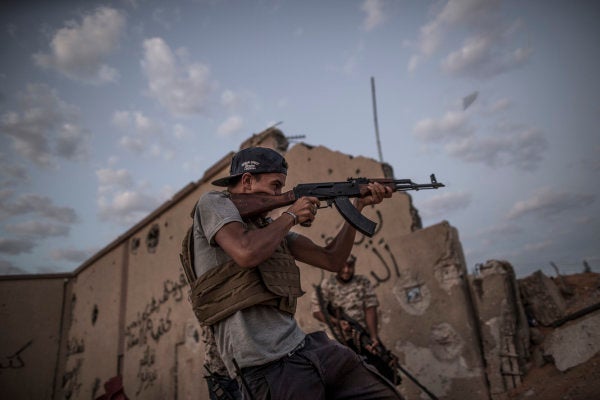The US is worried about growing Russian influence in Libya’s civil war
The U.S. is growing increasingly worried that the Russian government is exploiting Libya's five-year-old civil war for Moscow's benefit

The U.S. is growing increasingly worried that the Russian government is exploiting Libya's five-year-old civil war for Moscow's benefit.
- In a terse statement last week, the State Department called on Libyan National Army commander Khalifa Haftar to cease his months-long assault on the capitol city of Tripoli out of concern over Russian meddling.
- “The U.S. delegation, representing a number of U.S. government agencies, underscored support for Libya's sovereignty and territorial integrity in the face of Russia's attempts to exploit the conflict against the will of the Libyan people,” the statement said.
- Those concerns aren't totally unfounded. According to Bloomberg, Russian mercenaries tied to the Moscow-backed Wagner Group that previously tangled with U.S. forces in Syria have been arriving in Libya in droves.
- From Bloomberg:
A private army linked to Russian President Vladimir Putin has been fighting on the front lines of the Libyan war for nearly three months, the latest projection of Russian power following a decisive military intervention on the side of President Bashar al-Assad in Syria.
More than 100 mercenaries from the Wagner group headed by Yevgeny Prigozhin, also known as “Putin's chef” for his Kremlin catering contracts, arrived at a forward base in Libya in the first week of September to bolster Haftar, whose forces have been bogged down on the outskirts of the capital since April.
Their numbers have since risen to more than 1,400 troops involved in direct fighting and manning artillery, according to three Western officials. Wagner has also brought in pilots. One official said 25 pilots, trainers and support crew had been deployed. Two others said the pilots were flying missions in refurbished Sukhoi-22 jets belonging to Haftar.
- The State Department's plea to Haftar came days after Libyan Prime Minister Fayez al-Sarraj, leader of the UN-backed government in Tripoli, warned that the growing presence of Russian-backed foreign fighters in the country would “increase the duration of the war.”
- Since taking office, President Donald Trump has stepped up drone strikes against ISIS-affiliated militants in Libya. In April, U.S. forces there were briefly ordered to leave the country as the security situation on the ground had grown “increasingly complex and unpredictable,” as a statement put it at the time.
- In a phone conversation with Haftar earlier this year, Trump “recognized Field Marshal Haftar's significant role in fighting terrorism and securing Libya's oil resources, and the two discussed a shared vision for Libya's transition to a stable, democratic political system,” the White House stated at the time.
